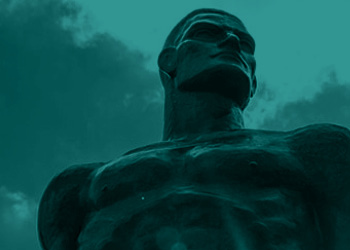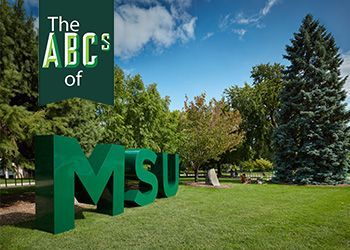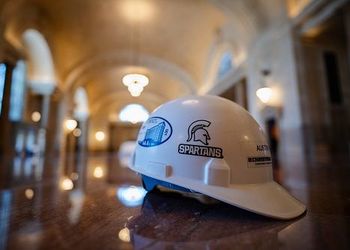The Thomas Edison of Baseball

The Thomas Edison of Baseball
Big league grads share tales of legendary coach Danny Litwhiler
“Let me give you 10 reasons not to give up…”
The Legend of MSU Baseball Great Danny Litwhiler
by Richard Johnson, “XX?
Kirk “Gibby” Gibson was big and speedy, a star wide receiver for Michigan State football in the late 1970s. His sole focus was on playing in the NFL, and he was plenty good enough to do it.
But after three seasons, football coach Darryl Rogers asked if he was interested in trying out for Spartan baseball, coached by former Major Leaguer Danny Litwhiler.
Gibson was reluctant, but his father loved baseball and was always putting a bug in his ear to take it up. “I didn’t know it was an option to play both sports,” Gibson said in a December phone interview. “I asked Coach Rogers about missing spring football practice and he said, ‘You know all of the stuff; you don’t need to be there.’”
So in 1978, Gibby decided to give Spartan baseball a shot. He got off to promising start—but in Big 10 play he struggled with the pitching.
He was thinking about quitting. “I missed football. Baseball was too frustrating. Danny said, ‘Let me give you 10 reasons why you should not give up baseball.’ He sat me down and we talked for about a half-hour. In the next game I hit two home runs and I hit a home run in the game after that."
Nice start. Followed by a nice finish. Gibson went on to become one of the greatest baseball players of his generation, leading the Detroit Tigers to their last championship in 1984 and walloping what might be the single most famous home run of the past 50 years for the L.A. Dodgers in the 1988 World Series.
‘A Spartan Trilogy’
Gibson’s tale is just one of many stories about Litwhiler.
MSU's head coach from 1964 to 1982, Litwhiler is the university's all-time winningest baseball coach, with a record of 488-362 and two Big 10Ten titles. His purest delight came from preparing athletes for professional careers—and inventing myriad drills, devices and training tools to help them succeed.
Litwhiler had always been a teacher. He’d spent 11 years as an outfielder with the Philadelphia Phillies, St. Louis Cardinals, Boston Braves and Cincinnati Reds. Experts considered him the game’s consummate idea man, a veritable Thomas Edison in spikes, who regularly came up with new ways to coax his players to excel.
During his 18-year span at MSU and his previous nine seasons as coach at Florida State, more than 100 of Litwhiler’s players signed pro contracts. Many of them made it to the majors. Among the Spartans who enjoyed long careers in the big leagues were Gibson, Steve Garvey, Mike Marshall, Tim Birtsas, Rick Miller, Dick Billings and Ron Pruitt.
Litwhiler savored his players’ successes. One high point came in Game Two of the 1974 World Series. In the top of the ninth, Mike Marshall (1960-1965) entered the game in relief for the Dodgers, called upon to protect a one-run lead over the Oakland Athletics. Playing first base for L.A. was Garvey (1965-1968), the National League MVP that year.
After Marshall struck out one batter, the A’s manager put in a pinch runner—none other than former Michigan State track star Herb Washington (1969-1972), whom Litwhiler had tutored in the art of base stealing.
It was a crucial moment in a huge game. Litwhiler is said to have popped with pride as Marshall whirled toward first and picked Washington off the bag, Garvey neatly applying the tag.
“I remember they made a baseball card out of that play,” Garvey said. “It shows me tagging Herb, and I think you can see Mike in the background. It was a true Spartan trilogy.”
In his autobiography, Living The Baseball Dream, Litwhiler called that moment “the ultimate dream of a college baseball coach.”
A Scientific Mind
In the off-season, Litwhiler worked as a high school science teacher, and he brought a practical approach—even a scientific method—to his sport.
He’s famous for lacing the baseball glove’s fingers together with rawhide straps—changing forever how baseballs are snared. As a player, Litwhiler racked up solid statistics. His reputation—untypical for the baseball of his era—was that of a working-man’s scholar.
After retiring in 1951, he worked as a coach and minor league manager, and then as the Florida State coach.
When John Kobs stepped down as MSU’s baseball coach following the 1963 season, Athletic Director Biggie Munn offered the position to Robin Roberts, a Hall-of-Famer and former Spartan star. Roberts told Munn that he really should hire a former teammate on the Phillies, Danny Litwhiler.
While upgrading facilities for players, Litwhiler developed a long list of novel drills and training methods, from a way for pitchers to increase thrust in the fastball by practicing with extra-heavy baseballs, to a three-pronged batting tee to help hitters perfect their stroke.
Perhaps Litwhiler's most famous invention was a radar device that measured the speed of pitches.
In 1974 Litwhiler spotted an article in the State News about a new gadget that campus police were using to catch speeders. A light bulb popped in his head—and using the radar gun is now as much a part of baseball as peanuts and Cracker Jack.
He also came up with Diamond Grit, which uses calcined clay to dry baseball fields after rain. And Diamond Dust, a dirt and clay concoction that Litwhiler co-developed, absorbs water from wet baseballs.
Another famous Litwhiler creation, the “Lit-Picker,” makes quick work of gathering up loose balls on the ground.
On-the-field strategy was another area of experimentation. Early on, Litwhiler started used a different pitcher in each inning—on the theory that a pitcher is most effective when facing a batter for the first time in a game.
Preparing for the Pros
Steve Garvey may have been Litwhiler’s best player, a stalwart in 1967 and 1968. Garvey was inducted into MSU’s Athletics Hall of Fame in 2010. His home runs, Litwhiler wrote, were “the towering kind, hit long and deep.”
After becoming All-American in his sophomore season, Garvey built a splendid 19-year major league career.
Today, he gives much of the credit to Litwhiler. “He was a very good pro-preparation coach,” Garvey said. “He allowed us to play baseball more in the professional baseball approach. A lot of colleges did a lot of bunting and moving guys over and taking the first two pitches and all that. But Danny’s approach was, ‘How can I develop this young player so that he has a chance to become a professional?’”
Litwhiler expected maturity of his players.
“One of the most important things as a coach he did,” Garvey said, “was let you become a young man and take responsibility for being at the school, being on scholarship and representing the school. He tried to make it a great experience for you.
“That’s why I love the branding of ‘Spartans Will.’ I think it is one of the great collegiate logos now. Danny was a real believer in doing things together.”
‘He Had a Way of Convincing You’
For Kirk Gibson, that one season of baseball under Litwhiler’s tutelage changed his life. “Danny was very innovative, whether it was inventing things like the radar gun or shaping my career,” Gibson said. “And he was very innovative in the way he talked to you. He had a way of convincing you.”
Indeed, he says, it was a method of communication unlike that of any other coach or manager he had played for. “When he told you to do something he also told you why.”
Gibson would never forget the life lessons he learned from Litwhiler in all his years of success and triumph as a professional player and then manager.
Pondering all Litwhiler had done for him, he quietly said, “I’m very grateful.”



